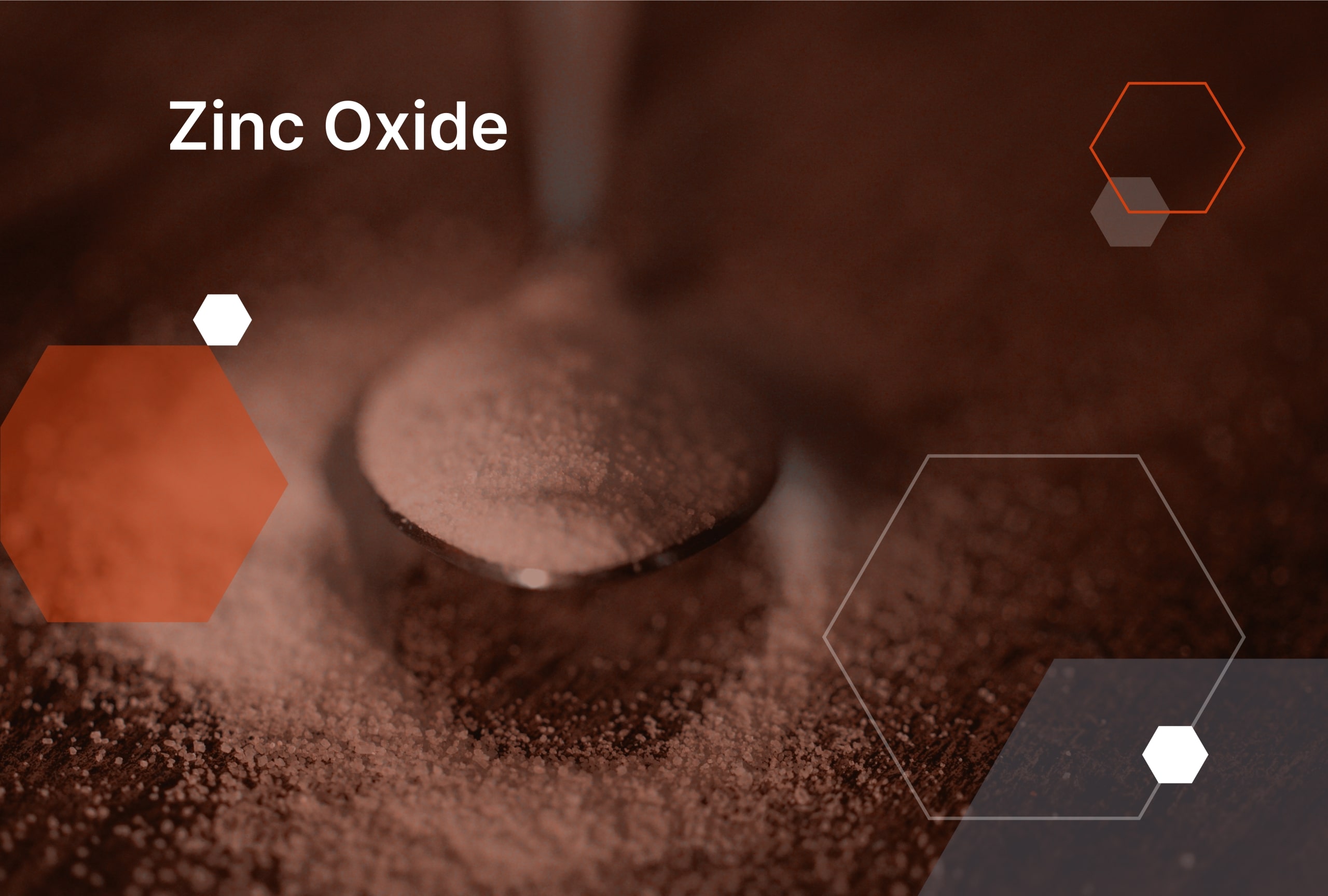
What is Zinc Oxide used for?
Kemiex is a digital solution for buyers and sellers of raw materials to digitalise transactions and obtain information about the Feed, Food, Veterinary, and other life science industries. In the following series of articles, we will explain the functions and uses of products that can be found in the Kemiex marketplace. On this occasion, we are going to explain the benefits of Zinc Oxide:
What is Zinc Oxide used for?
Zinc Oxide is a versatile compound that is used in a wide range of applications across various industries. It is a white, powdery substance that is insoluble in water, and is commonly found in nature as the mineral zincite. In this article, we will discuss the various uses of Zinc Oxide.
What are the main uses of Zinc Oxide?
1. Sunscreen:
Zinc Oxide is a key ingredient in many sunscreens, due to its ability to reflect and scatter both UVA and UVB rays. This property makes it an effective physical sunscreen, which works by forming a barrier on the skin to protect it from the sun’s harmful rays. Zinc Oxide sunscreens are also considered to be safer and more eco-friendly than chemical sunscreens, as they do not contain harmful chemicals like oxybenzone and octinoxate, which have been shown to damage coral reefs.
2. Cosmetics:
Zinc Oxide is also commonly used in cosmetic products, such as foundation, powder, and lipstick. It is used as a bulking agent, to add texture and thickness to products, and as a pigment, to provide a white color. Additionally, it has anti-inflammatory properties, which make it an effective ingredient in products designed to soothe and calm irritated skin.
3. Health-Related Products:
Zinc Oxide is used in a variety of health and skincare products, including creams, ointments, and powders. It is used as an active ingredient in diaper rash creams, as it helps to soothe and protect the skin. It is also used in antifungal creams, as it has antimicrobial properties and can help to treat fungal infections.
4. Animal Feed:
Zinc Oxide is added to animal feed as a source of zinc, which is an essential nutrient for the growth and development of animals. It is commonly added to feed for pigs and poultry, as they have a higher requirement for zinc than other animals.
5 Ceramic Manufacturing:
Zinc Oxide is used as a flux in the production of ceramics, as it helps to lower the melting point of the raw materials used in the process. It is also used as a glaze ingredient, to create a smooth and glossy finish on ceramic products.
In conclusion, Zinc Oxide is a highly versatile compound that is used in a variety of applications across different industries. Its ability to protect against the sun’s harmful rays, as well as its anti-inflammatory and antimicrobial properties, make it a valuable ingredient in sunscreens, cosmetics, and health-related products. Additionally, its strength-enhancing and anti-cracking properties make it an important ingredient in rubber and ceramic manufacturing, while its nutritional value makes it a key component of animal feed.
Which foods are the main sources of Zinc Oxide?
Zinc Oxide is not commonly found in foods, but it can be added as a dietary supplement or fortification in some food products. Here are some examples:
1. Breakfast cereals: Zinc Oxide is commonly added to fortified breakfast cereals to increase their nutritional content.
2. Dairy products: Some dairy products, such as milk and yogurt, may be fortified with Zinc Oxide to improve their nutritional value.
3. Infant formula: Zinc Oxide is commonly added to infant formula to ensure that babies receive enough zinc for healthy growth and development.
4. Meat products: Zinc Oxide can be used in the processing of meat products to prevent bacterial growth and improve their shelf life.
5. Baked goods: Zinc Oxide may be added to bread and other baked goods as a fortification ingredient.
6. Snack foods: Some snack foods, such as protein bars, may contain Zinc Oxide as a fortification ingredient.
7. Beverages: Zinc Oxide may be added to sports drinks and other beverages to enhance their nutritional value.
8. Confectionery products: Zinc Oxide can be used in the production of candies and other confectionery products to improve their appearance and texture.
9. Protein powders: Zinc Oxide is sometimes included in protein powders and other nutritional supplements to boost their mineral content.
10. Vegetarian and vegan products: Zinc Oxide may be added to vegetarian and vegan products to ensure that they provide adequate levels of zinc for individuals who do not consume meat.
Where to buy bulk Zinc Oxide and get market information?
In Kemiex, we offer a safe and private online environment to buy and sell raw materials for the Feed, Food, Veterinary, and other life science industries. We also offer market information such as Price Trends, Trade Flows and Market News for all the micro-ingredients of the mentioned industries.